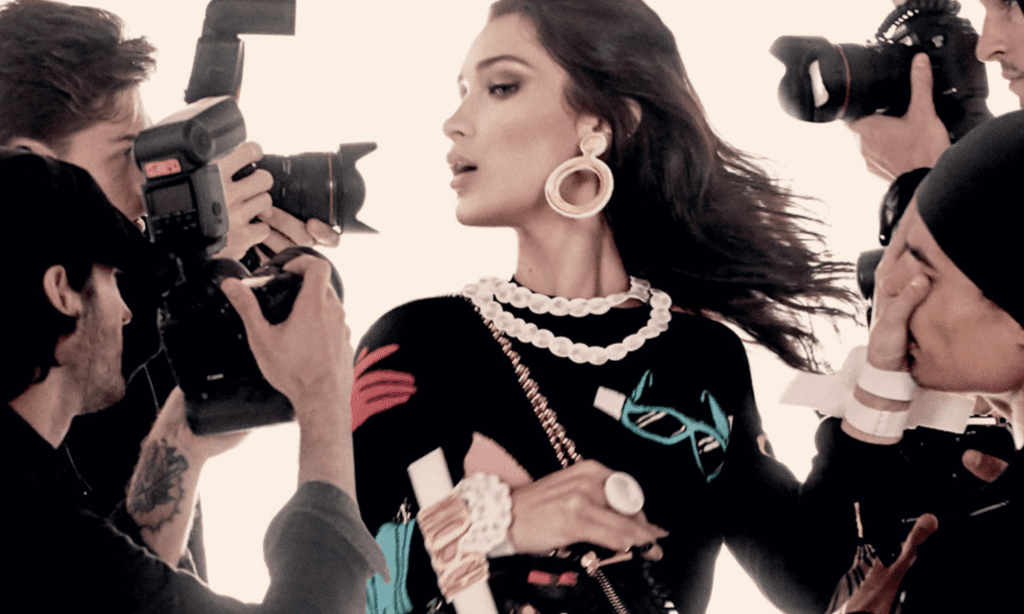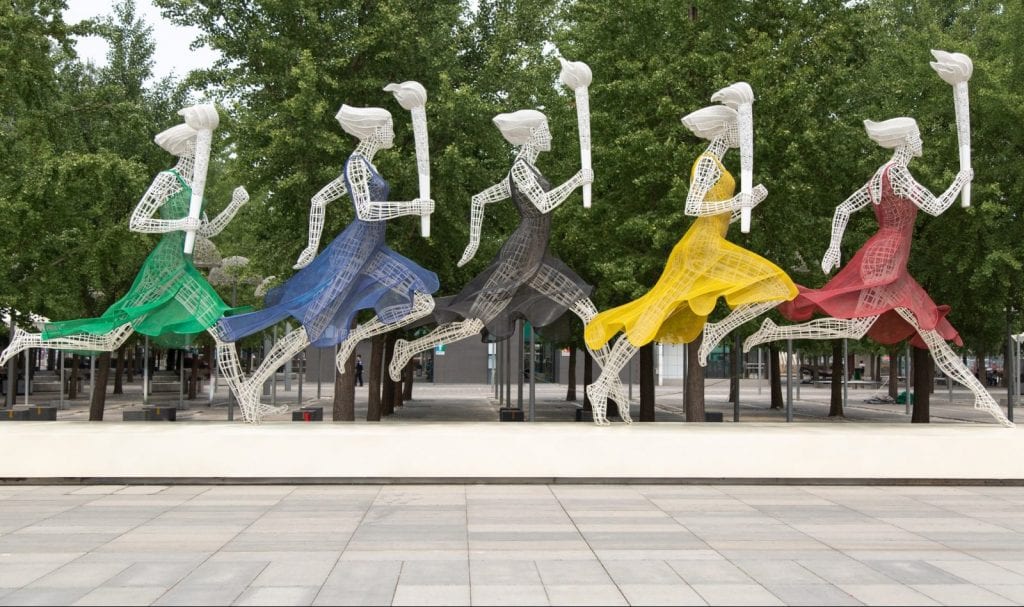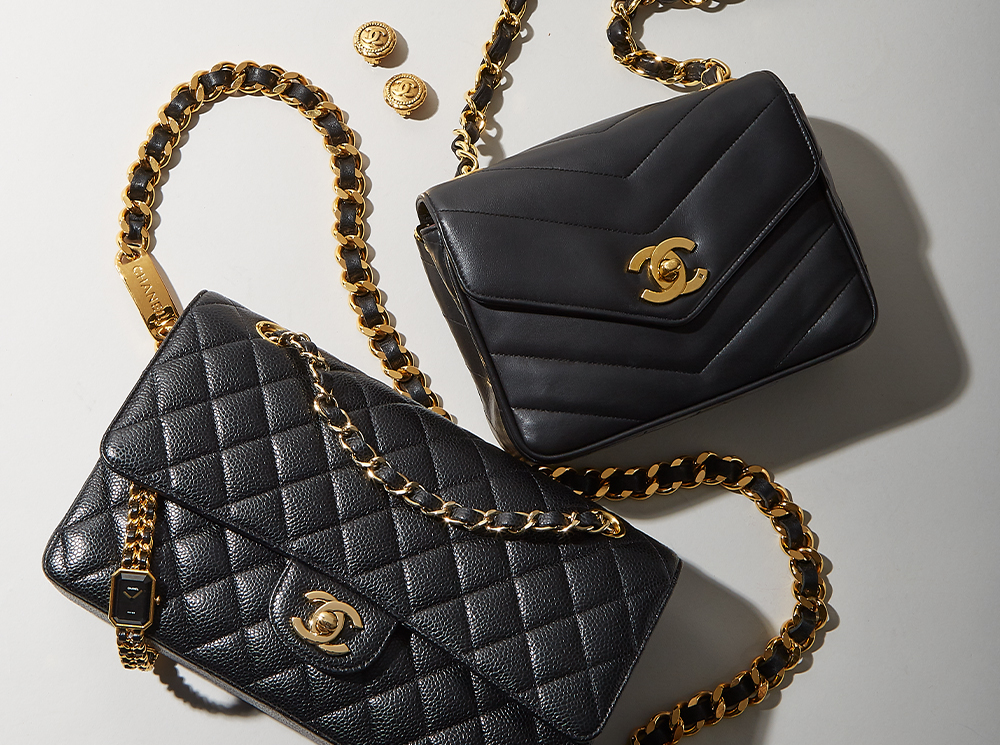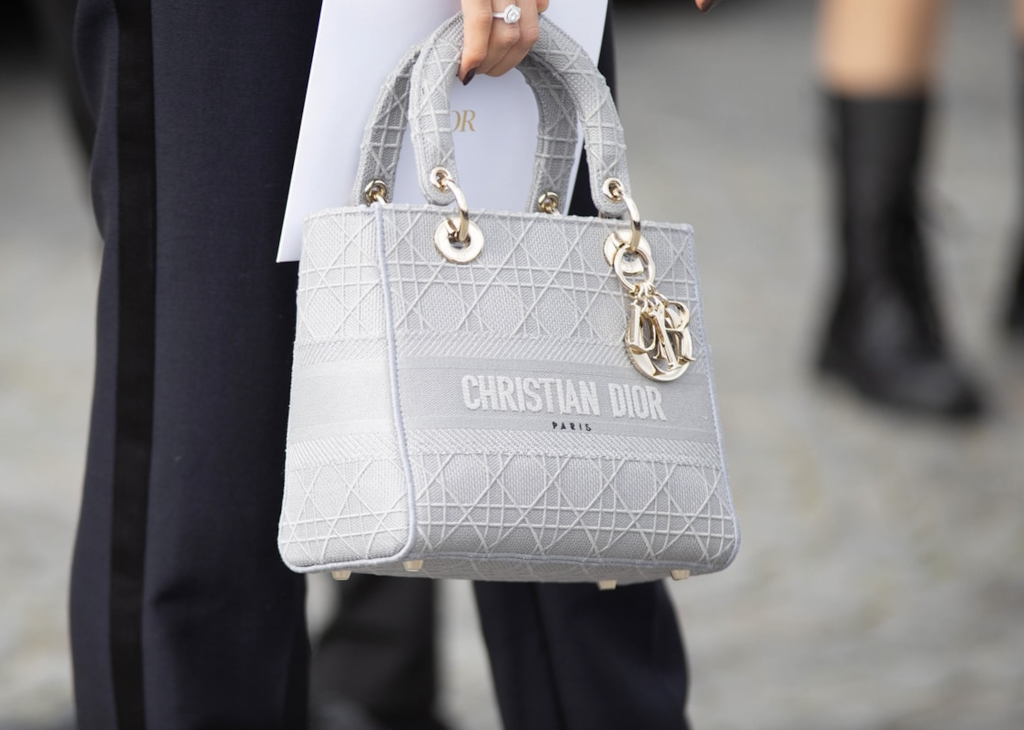When Cardi B – or nearly any major celebrity, for that matter – steps out in public, a stream of flash bulbs tends to follow courtesy of paparazzi photographers scrambling to get their shots of the famous figure. An evening in May 2018 was no different, except that when chart-topping rapper Cardi B was spotted in New York City, she was enveloped in a floral bouquet of a jacket from Jeremy Scott’s Spring/Summer 2018 collection for Moschino. As usual, the paparazzi swamped, snapped their photos, and swiftly licensed to websites that published them within a matter of hours.
In addition to celebrity-centric websites running the images of a Moschino-clad Cardi B, Splash New asserted in a lawsuit filed several months later that Moschino, Jeremy Scott, and Cardi B also made use of the images. Despite reaching out to Moschino to notify the brand about the photos and “offering [it] a license for internal or social media use,” Splash News claimed in its October 2019 complaint that Moschino and its creative director “copied” the images from the Daily Mail “almost instantaneously” and posted them on social media to promote their wares.
Meanwhile, Cardi B similarly posted one of the photos to her Instagram a month later without licensing it from the Los Angeles-based photo agency or otherwise receiving authorization to use it.
As a result, Splash News lodged copyright infringement claims against each of the defendants, arguing that they ran afoul of federal copyright law, which grants it – as the copyright holder of the images – the exclusive right to copy the images, display them, and/or authorize others to do so, among other things. Now, instead of quietly settling the case, which has been the most common course of action in the growing number of paparazzi v. celebrity/fashion brand lawsuits, Moschino has responded by waging a copyright fight of its own.
In a 28-page answer to Splash News’ suit, Moschino not only denies that it is in the wrong for posting the Splash News-owned photo (and sets forth a whopping 45 affirmative defenses), the Italian brand claims that, in actuality, the photo agency is the one that is on the hook for copyright infringement.
As it turns out, the floral Moschino jacket that Cardi B was wearing in the photos is a “visual material,” entitled “When Spring Is In Bloom,’” according to Moschino, which says that it registered the design with the U.S. Copyright Office in 2018. Due to the copyright-protected status of the Moschino coat, the brand has a bundle of rights of its own that cover how it may be used and/or depicted. This includes Moschino’s exclusive right to reproduce the copyright-protected work, display it, and/or create derivate works based on it. And thanks to its registration of the design, the brand has the ability to sue for infringement if/when any of those rights are infringed, which is precisely what it claims is going on here.
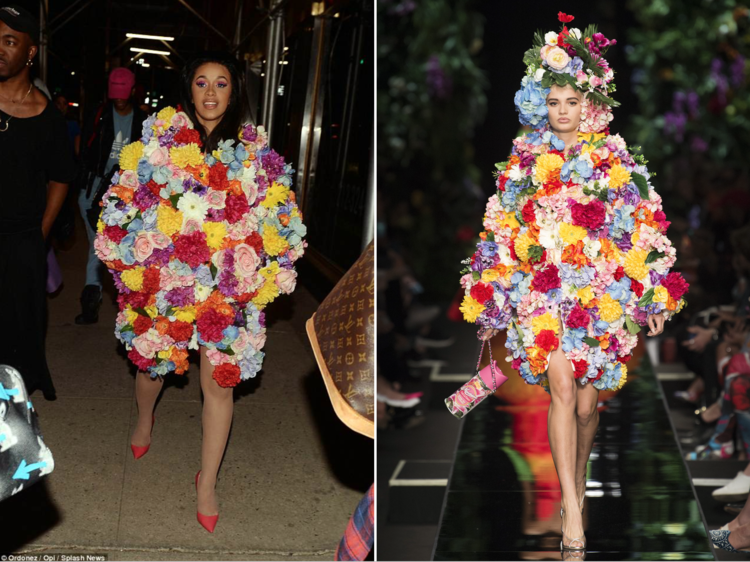
Splash News’ photo (left) & Moschino’s jacket design (right)
In furtherance of its copyright infringement counterclaim, Moschino asserts that by way of photos taken by Splash-affiliated photographer Elder Ordonez, Splash News “reproduced, distributed, and publicly displayed copies of the [jacket design] (or materials substantially similar thereto), and/or prepared derivative versions thereof, by, among other things, further licensing photos [of the jacket design] to third parties for commercial purposes and profit.” (Derivative works are those based on or derived from one or more already existing, copyright-protected works).
The brand claims that “neither [it] nor Scott ever licensed any rights in the [jacket design] to Splash or provided it with any authorization or permission to make any use whatsoever of the [jacket design].” As a result, the photos at issue “unlawfully depict the [jacket design], thereby rendering [them] unauthorized derivative works that, among other things, lack their own copyright protection and constitute copyright infringements.” So, now, the parties have rival copyright infringement claims against each other.
While Splash News’ infringement cause of action against Moschino, Scott, and Cardi B is straightforward enough as the Copyright Act prohibits the unauthorized reproduction of another’s image in a commercial capacity (save for any potential right of publicity arguments or co-authorship claims that could be made, which has happened in similar cases in the past), Moschino’s infringement claim against Splash News is a bit murkier.
Just as in the case of photos, the unauthorized depiction of another party’s copyright-protected work can give rise to infringement liability … even when that work consists of the creative aspects of a garment. Moschino’s copyright infringement claim against Splash is a particularly interesting one, though, given that “there is a provision in the Copyright Act that allows people to photograph buildings that are visible in public” without running afoul of the copyright protection that exists in the design of those buildings,” Mark McKenna, an intellectual property professor at Notre Dame Law School, told TFL.
However, that exception – which explicitly shields those that make, distribute, or publicly display pictures, paintings, photographs, or other pictorial representations of public buildings from infringement liability – is not applicable in the case at hand, as McKenna states, “There is not a similar provision for fashion.”
With that in mind, “[Splash News’ photos are] probably a violation of the reproduction or derivative works right to photograph a protected design,” at least as an initial matter, according to McKenna. That does not necessarily mean that Splash News will not be able to escape potential infringement liability on different bases. “I can’t help but think a court would have a hard time with that claim when it’s a person wearing the design in public,” McKenna says. “Maybe they would find it to be fair use, or impliedly licensed.”
Finally, Harvard Law School intellectual property and advertising law professor Rebecca Tushnet notes the relevance of 17 USC 113(c) in the case at hand. Specifically outlining the “scope of exclusive rights in pictorial, graphic, and sculptural works,” such as Moschino’s jacket design, the statute states that “in the case of a work lawfully reproduced in useful articles that have been offered for sale or other distribution to the public, copyright does not include any right to prevent the making, distribution, or display of pictures or photographs of such articles in connection with advertisements or commentaries related to the distribution or display of such articles, or in connection with news reports.”
In her own article on the statute, Tushnet notes that “one reading, and perhaps the best one, is that §113(c) allows anyone to take their own pictures of a useful article for ads or news, but not to copy the copyright owner’s pictures of same.”
UPDATED (March 27, 2020): After filing a notice of settlement on January 30, the court dismissed the case in its entirety and with prejudice (meaning that it cannot be filed again).
*The case is Splash News and Picture Agency, LLC v. Moschino S.P.A., Jeremy Scott, and Belcalis Marlenis Almanzar p/k/a Cardi B, 2:19-cv-09220 (C.D.Cal.).




